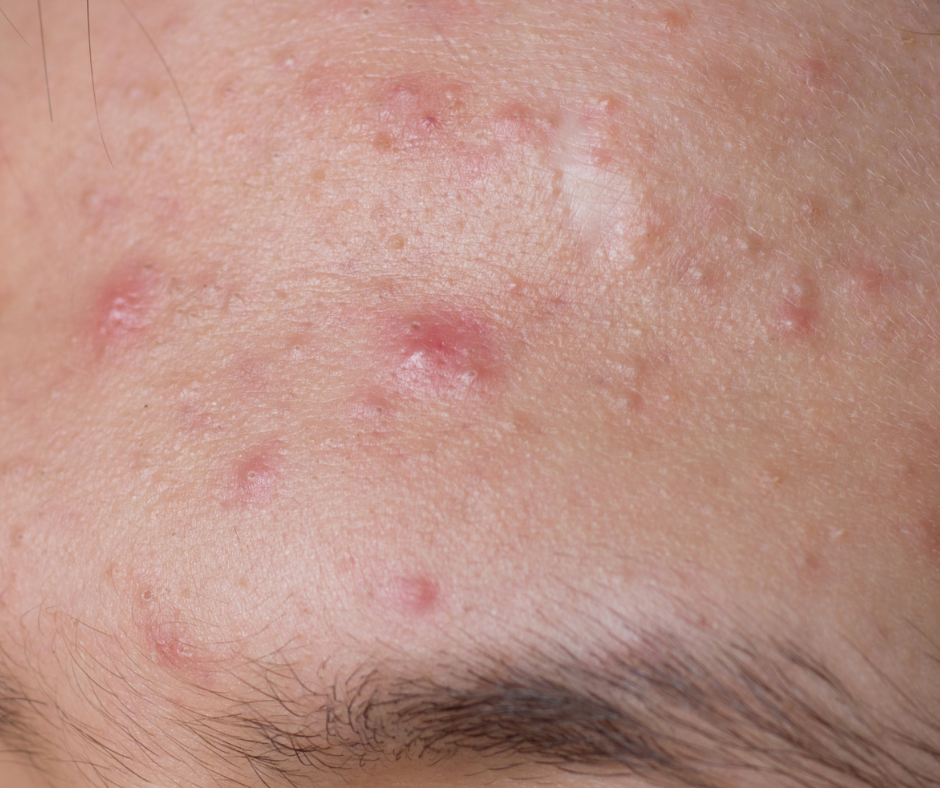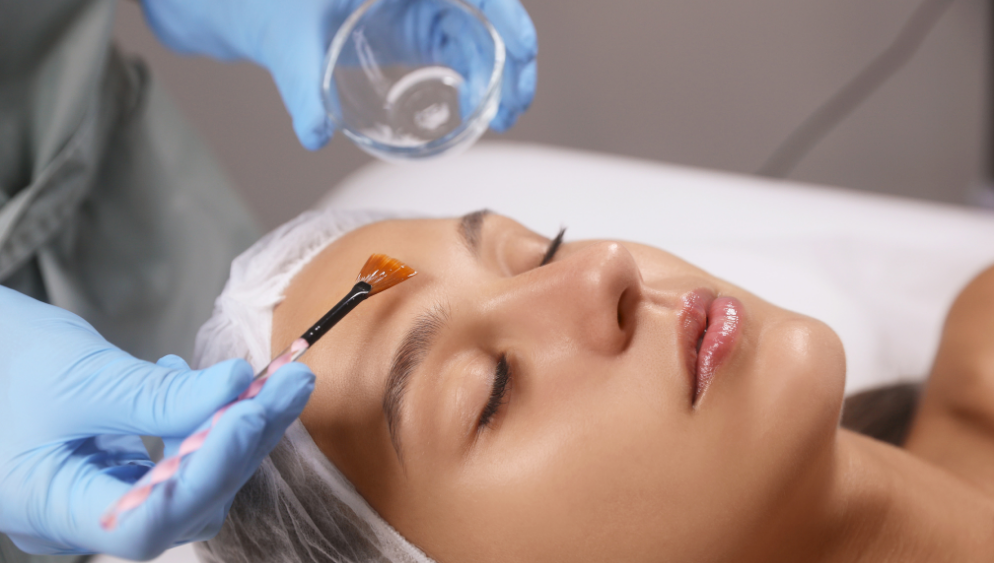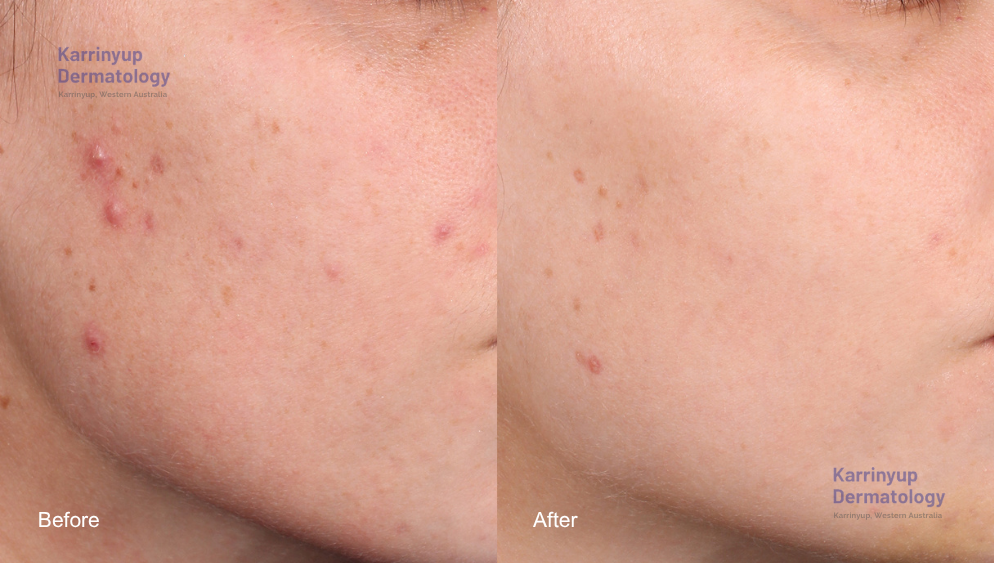Acne Treatments
Acne & Acne Scarring
Persistent acne may need more than just a skincare routine. Acne can appear in the form of blackheads, hormonal acne, cystic lesions or ongoing congestion. There are several factors which contribute to the cause of acne, including an overproduction of oil, build-up of dead skin cells, and the presence of bacteria on the skin.
Our team is here to help develop a tailored treatment plan that works for you. Acne can be caused by a combination of internal and external factors, each person’s experience with acne is unique. Come in for a consultation to learn more today.

Professional help is often the key when over-the-counter products aren’t enough.
Consult with our experienced dermatologists for a personalised acne management plan today.
What is Acne?
Acne is a common inflammatory skin condition that occurs when hair follicles become blocked by excess oil (sebum), dead skin cells, and bacteria. It typically appears on the face, chest, back, and shoulders, and can range from blackheads and whiteheads to inflamed pimples, nodules, or cysts. While often associated with adolescence, acne can persist into adulthood and may be influenced by hormonal changes, genetics, stress, and certain skincare or lifestyle factors. Acne can be emotionally distressing, and if not properly treated it can lead to long-term scarring.
What are the different types of acne and how can we help?
Acne presents in various forms and severities. Mild acne might include occasional blackheads or whiteheads, while moderate acne could involve more frequent papules (small red bumps) or pustules (bumps with pus). Severe acne includes painful, inflamed nodules or cysts that are deeper within the skin and are more likely to cause scarring. It’s important to recognise that acne is not just a cosmetic concern. Persistent or untreated acne can leave physical and emotional marks. This is why early and professional intervention can make a significant difference.
Our dermatologists are highly experienced in diagnosing and managing all forms of acne, from mild congestion to severe cystic acne. We tailor each treatment plan to suit your specific skin needs and provide expert advice on skincare routines and products to support your skin between treatments.
Our Approach to Acne Treatment
Your acne treatment journey will begin with a comprehensive consultation, where we take the time to understand your skin, your concerns, and what you’ve tried in the past. From there, we’ll create a personalised treatment plan tailored to your skin type and the type of acne you’re experiencing. You can expect regular follow-up appointments to monitor your progress, adjust treatments if needed, and support you every step of the way. We’ll also guide you in building a simple, effective skincare routine and provide expert advice to help you manage flare-ups and protect your skin long-term.

Clinical Skin Peels for Acne
One of the treatments we offer for acne is Clinical Skin Peels. Our medical-grade chemical peels can help improve active acne and prevent future breakouts. These treatments work by gently exfoliating the skin, unclogging pores, reducing oil buildup, and targeting bacteria that contribute to acne.
Certain peels can also help fade post-acne pigmentation and improve overall skin texture. Our team will recommend the most suitable peel for your skin type and acne severity as part of a personalised treatment plan.

Clinical Skin Peel Treatment

*Please note that results are individual and may vary. Results shown above are from a clinical skin peel treatment.
Acne affects everyone differently, and your treatment should reflect that.
We provide a wide range of advanced acne treatments to suit every skin type, stage, and severity. Book a consultation to find the best approach for long-term results and healthier skin.
Acne Scarring
Acne scarring is a common long-term consequence of moderate to severe acne, particularly when inflammation affects the deeper layers of the skin. Scars form as part of the skin’s natural healing response, but when this process is disrupted due to prolonged inflammation, delayed treatment, or skin picking—it can result in permanent changes to the skin’s texture and structure.
There are several types of acne scars, including:
-
Atrophic scars – such as ice pick, boxcar, and rolling scars, which present as depressions in the skin
-
Hypertrophic and keloid scars – raised or thickened areas of fibrous tissue